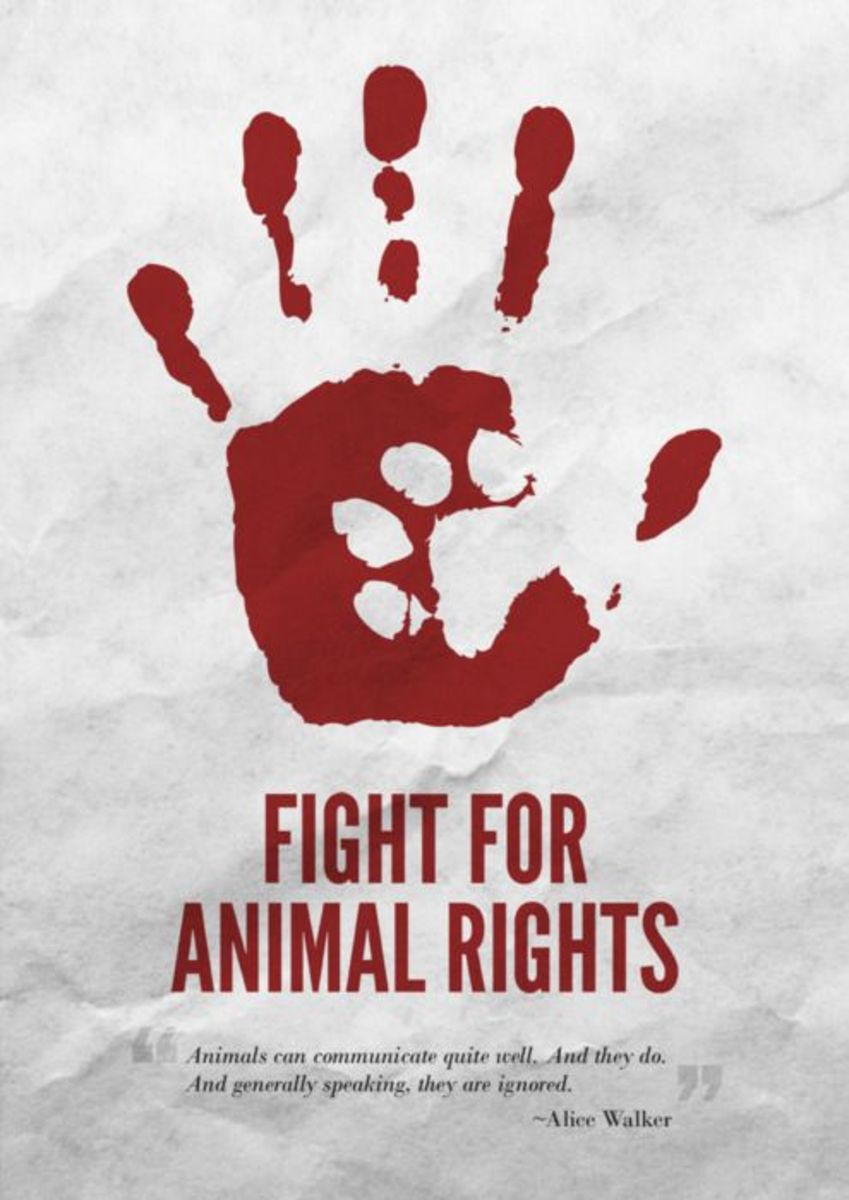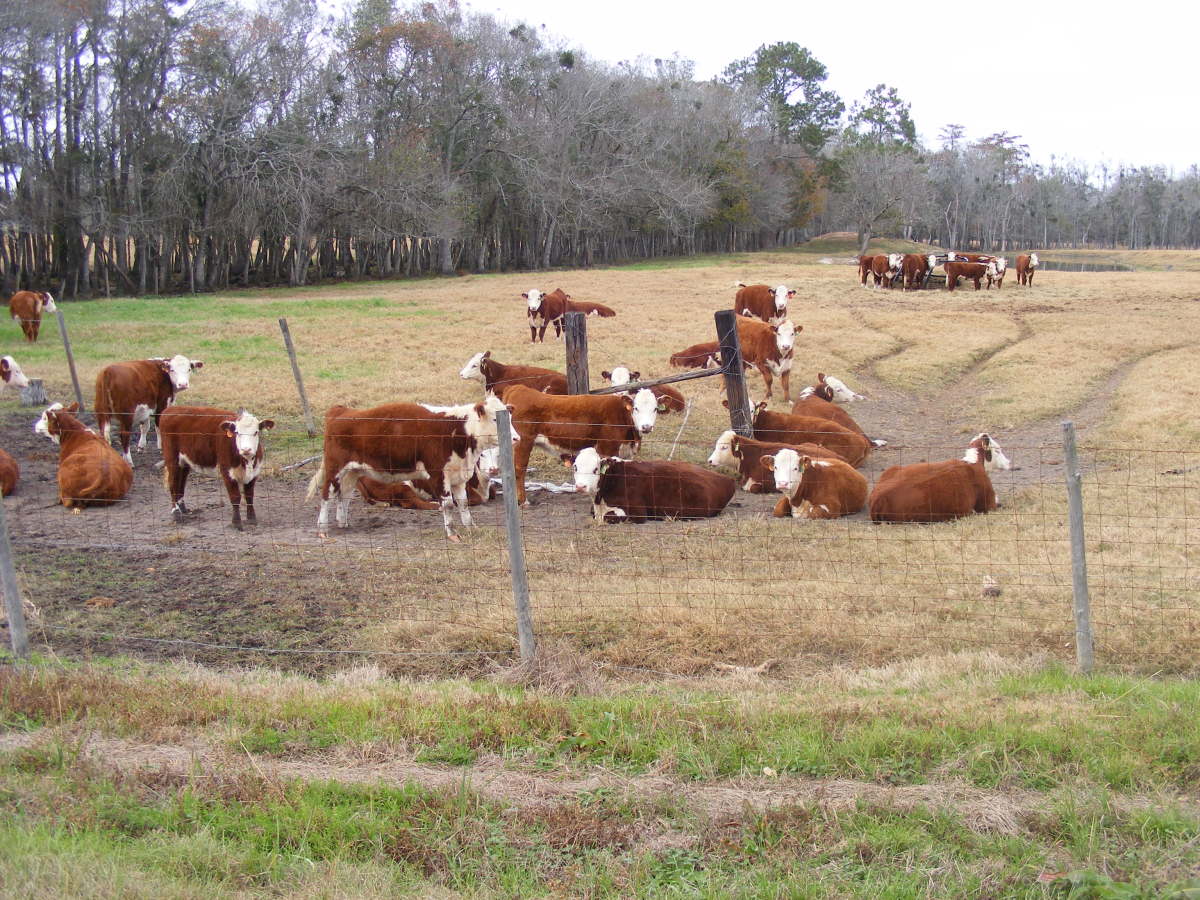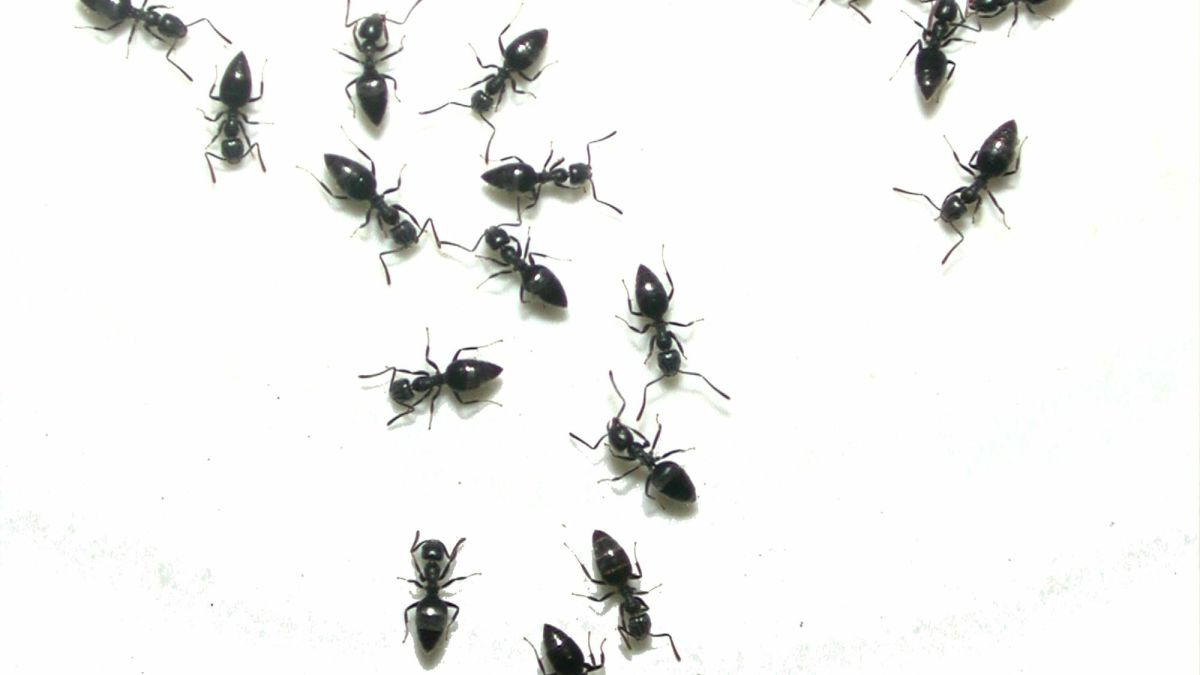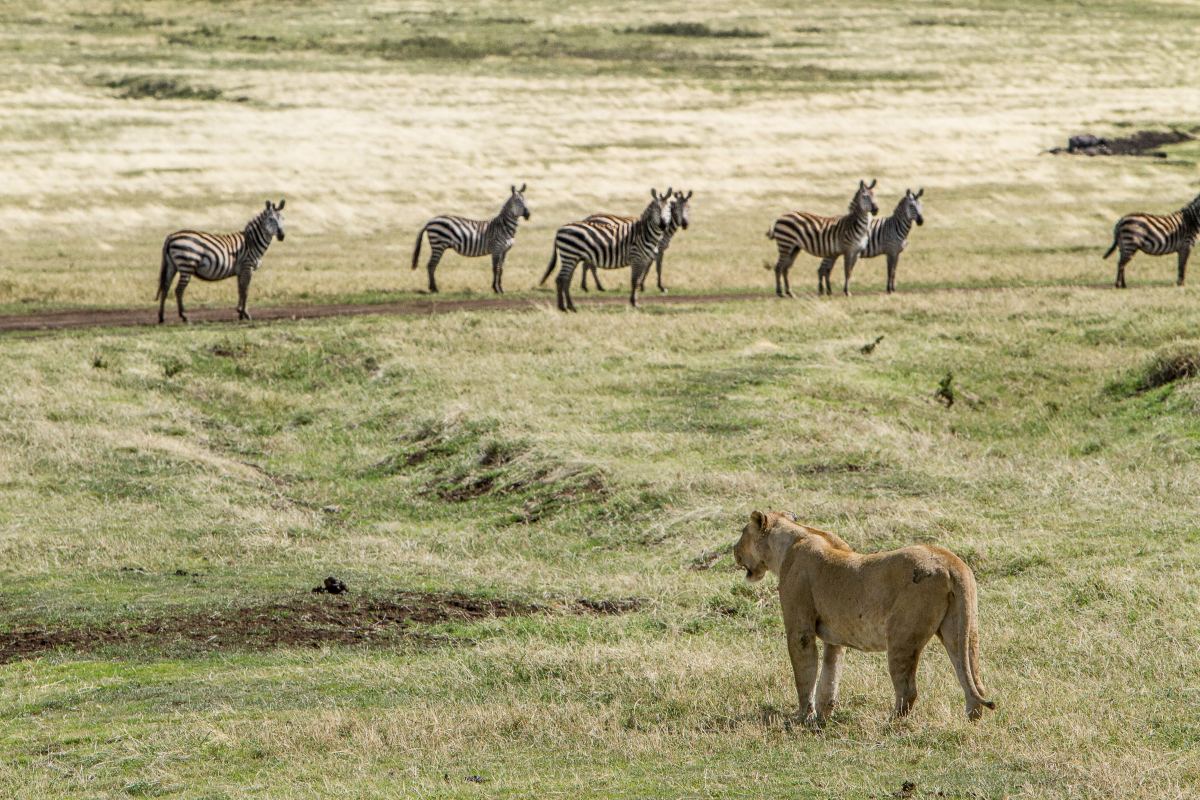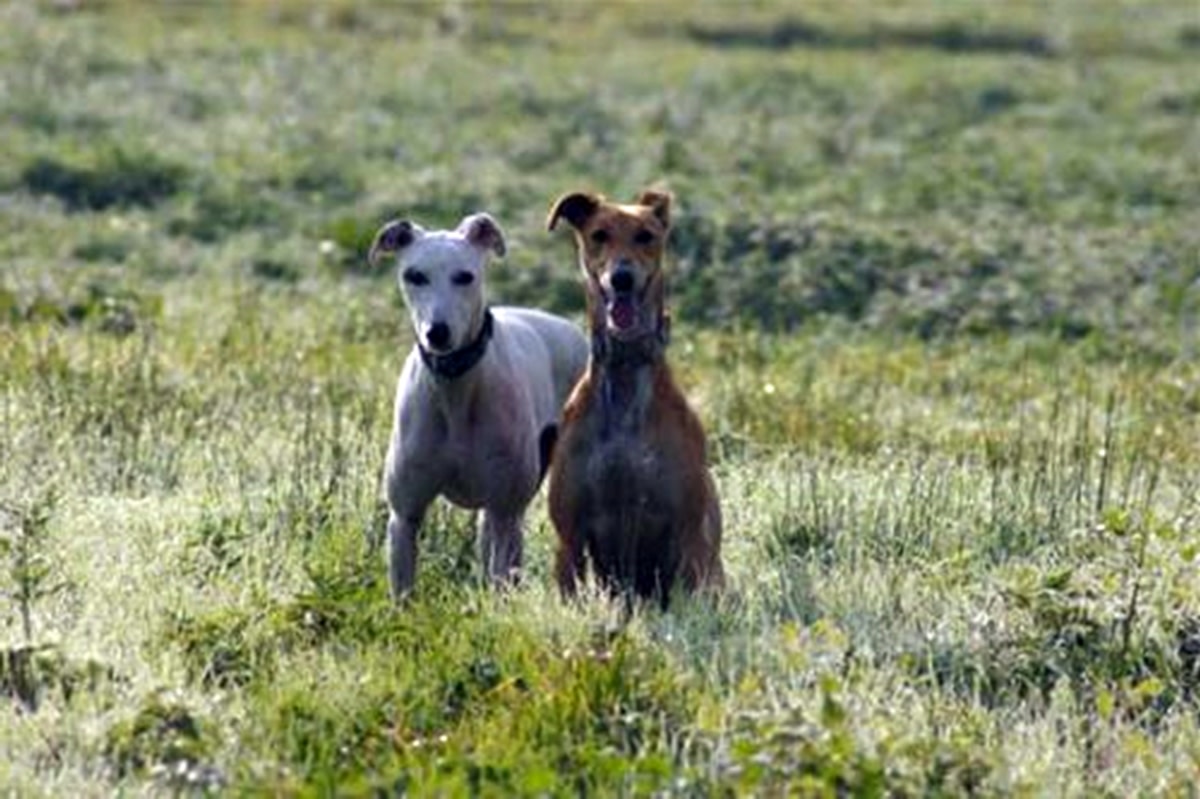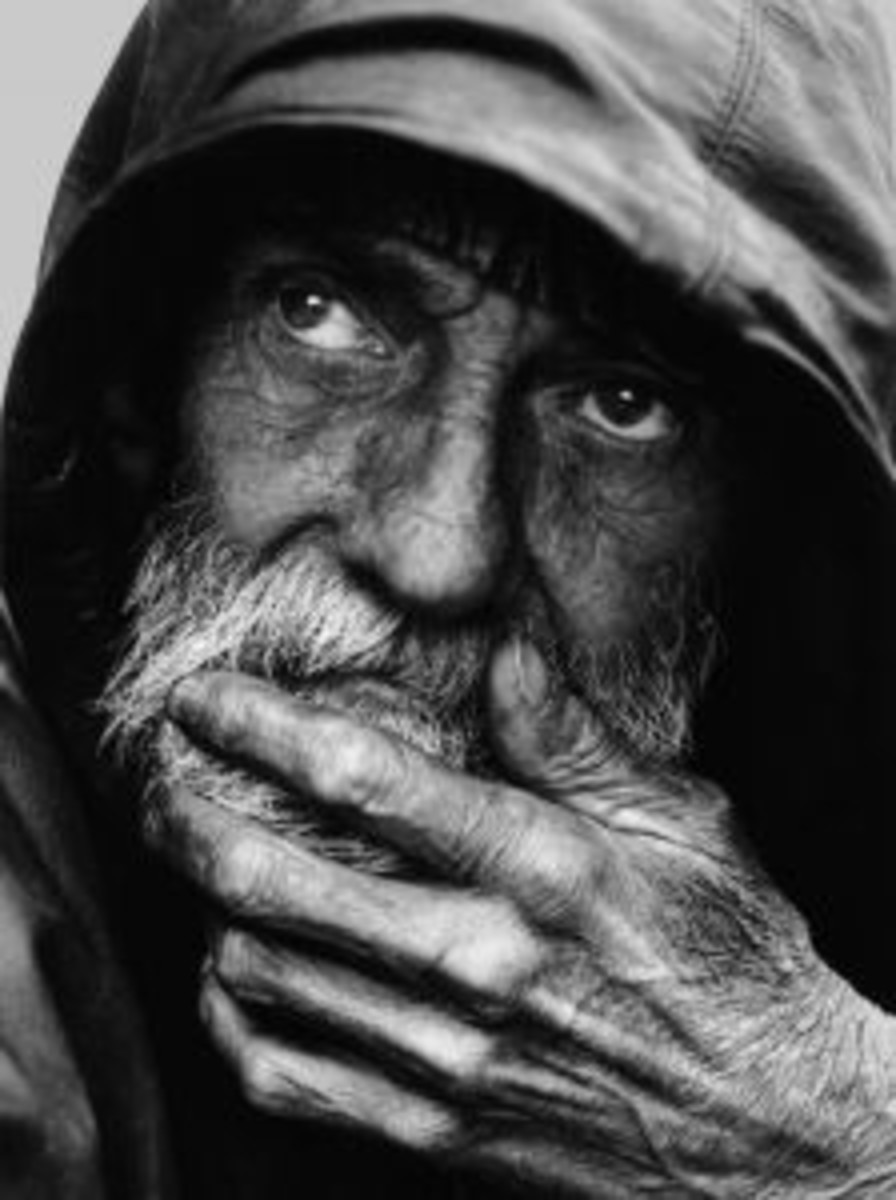Was Voldemort a Vegan?
Wild Black Raspberries, With Thorns
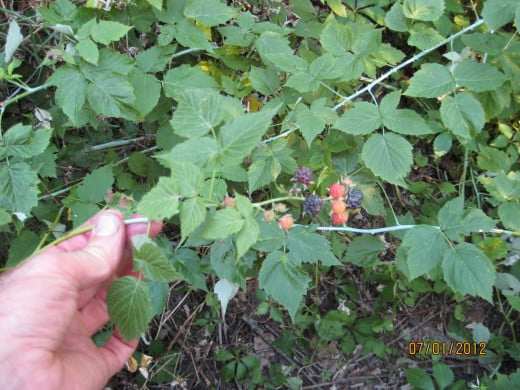
Do They Fear Death?
Courtesy of the animal rights organization PETA (People For The Ethical Treatment of Animals) we have the following grim video. It shows scenes from factory farms. If you choose to watch it, you will see, repeated again and again, scenes of death, dead and dying animals, and farm workers killing sick animals. Click the link to see the actual video, I won't place it here.
Did you click through and watch any of the video? Did it shock and sadden you? Does the fact that animals have to suffer and die so that you can enjoy a nice beef patty or a chicken nugget make you less likely to eat meat?
I have to say that, for myself, while I don't like to see any living being suffer and die, it will not affect my enjoyment of my next pork chop or steak. PETA, and other animal rights activists like to claim that due to the crowded conditions, cruelty, sickness and death among the animals on factory farms, it is immoral for humans to treat animals in this way, and immoral for us to eat them or interact with them in any way.
Why would wild chickens be more healthy then factory farm chickens? Well, mainly because they don't have someone looking after them 24 hours a day, so the weaker ones all get caught and eaten by cats and foxes. Wild animals are super-healthy only to the extent that the weak ones die young.
A wild mother hen might lay a hundred eggs in her life, but cruel nature dictates that only one will survive to lay eggs of its own. Free-range chickens cost more, because so many die before they reach market.
PETA Opposed To Human-Caused Pain
Domestic animals are bred and raised in conditions that allow all but the weakest to survive. Perhaps this loss of Darwinian selection is what causes the PETA folks such anguish? I wonder, do they also advocate social Darwinism for humans? Should we allow weak, diseased and elderly people to die in the streets, eaten by wild dogs? Somehow, I doubt that this is what they mean (although looking at the recent scandals in health services in socialized countries like Holland and Britain, one has to wonder).
They are unhappy because we keep animals indoors, in climate controlled buildings, with plentiful food and water. Naturally, even in these easy conditions, many will sicken and die. An animal will become ill, and the farmer will have to kill it, both to protect the health of the other animals, and to shorten its suffering.
Barren Wheat Field
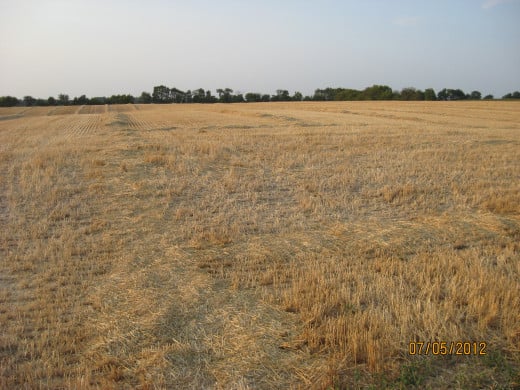
The Pain Of Vegan Farming
Animal rights activists are intensely opposed to animal suffering caused by human actions. It isn't just the conditions on factory farms that disturb them. They also decry the trucks that take animals to the slaughterhouse, the methods used to kill the animals, and the mere fact of eating meat or using animals in any way, if any step along the way involves pain or death to an animal.
But I really don't think they are being honest with themselves. Consider a small, organic farm, producing vegetable food for a vegan family. The farmer prepares the field in the spring to receive the seed. Oops, can't plow the ground, the plow kills all the field mice, gophers and baby bunnies and birds living in the field. There are lots of these.
Beyond that, it removes that field from nature, so all of the animals that might have lived there, deer, foxes, groundhogs or whatever, cannot find food to eat or shelter from the weather or predators. The land removed from nature to feed a family of humans, results in the death by starvation of an equal weight of animals.
Three humans equal three deer, and a huge number of small animals. In my gardens, I enjoy watching the rabbits chew my greens and the robins devour my berries. Woodchucks devastate my pumpkins and sweet potatoes and tomatoes. If I had to survive off my garden labor, I would be forced to kill all of these animals.
Since my gardening is for my own enjoyment, and I also enjoy watching baby bunnies eating my greens, I leave them be, even though that means I have to buy more food at the supermarket.
Soybean Field, Raw Materials for Tofurkey

No Land For Animals
There is no place in a farmed field for animals to live. Vegan fields are just as barren of animal life as meat eater's fields. The little animals that once lived here were buried alive by the plow.
Warning! Scrolling to the second picture below this point will bring up a graphic image of a dead animal.
Corn, To The Horizon
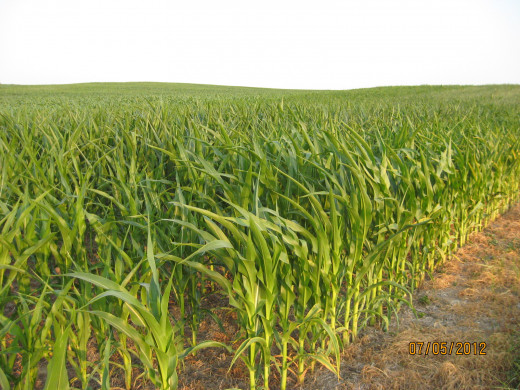
Road Kill, Vegan-Style
Then, there are the additional deaths caused by transportation of the food. Vegans live in cities. Trucks speed along the roads, farm to supermarket, mowing down every animal in their way, mice, deer, even bears and moose once in a while. It is impossible to produce Vegan food for even a single person without killing and maiming perhaps hundreds of animals every year, and driving hundreds more off their habitat to starve. Everyone who agrees to ride in a car is equally guilty.
***Road Kill Picture Below:
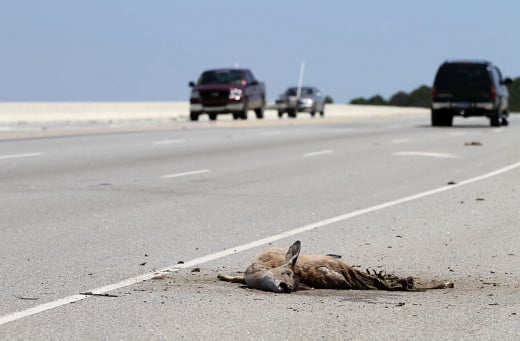
Voldemort
I, as a meat eater, am responsible for very few more deaths than these.
Remember in the Harry Potter story, Voldemort (fly from death) pursued his evil schemes in order to achieve eternal life. He was intensely afraid of death. It seems that PETA folks and their fellow travelers are also deeply conflicted by fear of pain or death.
Evidence? Read their website.
On their diet page, they give some rather iffy statistics, claiming for example that no one has ever died from a heart attack if their cholesterol level was under 150. Sadly, this isn't true, but even if it were, so what? Do Vegans die of nothing at all? Do they continue, living on and on, as the sun dims and the stars fade? No, Vegans also age and die, at about the same rate as others of their race and social class. I wonder why they make such a big deal over a possible few weeks or months of extended lifespan, as if that were such a great thing to grasp at.
What is it about pain and death caused by humans that so drives them? Nature is far more cruel. In the video linked at the top, there is a sad scene of newborn calves being separated from their mothers. Is this more cruel than a wolf, tearing a living calf apart after driving off a mother cow? Farmers at least provide plentiful food and water. Butchers at least strive to kill quickly and humanely, if not always succeeding.
Alec Baldwin, narrating the video, states that 40% of dairy cows go to market lame. Probably true. But does he pause to think why this might be? Or does he just want a factoid for propaganda. Farmers keep valuable dairy cows until it is impossible to keep them longer. In many cases this is ten years or more. Very few wild animals are given ten years, the great majority die in fear during their first year, of sickness or predators. Farmers keep dairy cows until they are lamed by age, and then sell them, of course.
What does Peta imagine would happen to these animals, were they all to be released to forage on their own? They would all die, unskilled at running from predators, or even identifying them. That seems not to concern Peta. Every so often we hear on the news of animal rights activists heartlessly releasing hundreds of animals from captivity, unconcerned by their fates once free.
There is an inner conflict. They hate cruelty and pain, but are willing to inflict it to further their aims of reducing it. Perhaps the old saw about breaking eggs to make omelets applies?
Fawn At The Verge Of An Oat Field
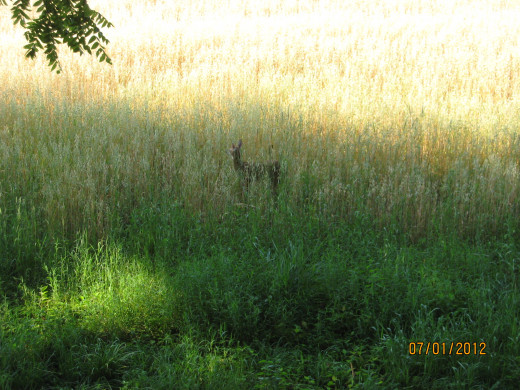
The Web Of Life
What PETA seems not to understand is that these animals are joined with humans in a great, interlocking web of life. In Ecology this relationship is called 'Mutualism', meaning both species benefit from the relationship. Humans gain food and other goods, friendship and a deeper, richer appreciation of the animal world. Domestic animals gain a reduction of fear and pain. The world is imperfect, pain and death occur. All life dies, soon or late. PETA seems to think that by eliminating human and animal relationships, death can be eliminated, pain diminished.
Am I suggesting we ignore cruelty to animals? Of course not. Simply that a clear view of the issue suggests that things are not quite so simple as PETA would like us to believe. The cruelty of the modern farm pales next to the cruelty that all animals born wild face every day. Outside of deliberate cruelty, things like organized dog and bull fighting, little that humans can imagine reaches the level of daily fear, the pain and suffering that ends the lives of all wild animals.
Should we continue making reforms to reduce cruelty? Don't be silly. Of course we should. But PETA doesn't want just reforms, they want, eventually, the complete separation of humans and the animal world. http://www.peta.org/ Scroll down and follow the links. What a sad, lonely idealism.

